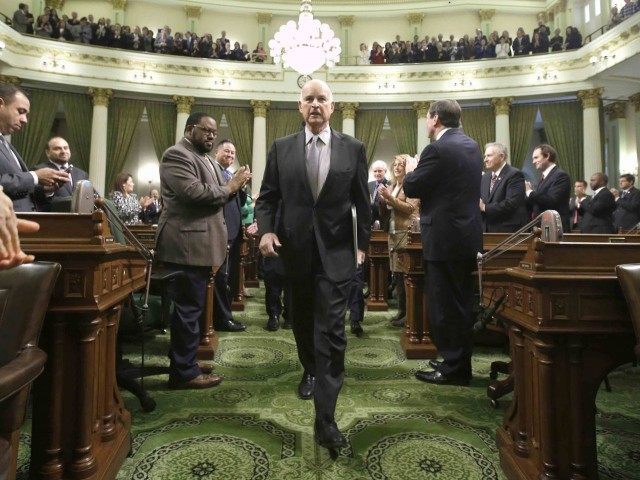The California Senate voted overwhelmingly — and surprisingly — to extend the state’s landmark AB 32 cap-and-trade law to limit so-called “greenhouse gasses” for another decade to 2030.
An effort to extend the 2006 climate change legislation fell 4 votes short of passing in June, due to bipartisan opposition from moderate Democrats in the State Senate. Most Sacramento observers had predicted earlier this month that the opposition to the job-killing legislation was unbreakable.
But in the run-up to the November election, a bipartisan majority of the Senate voted 25-13 in support of a bill that sets a target of cutting the state’s output of carbon emissions by 2030 to 40 percent less than in 1990.
The SB 32 vote came just hours after the state Assembly passed another piece of climate change legislation, titled Assembly Bill 197, which will increase legislative oversight over programs run by the California Air Resources Board. Governor Jeerry Brown has promised to sign both bills quickly.
Sacramento environmentalists, led by Senator Fran Pavley (D-Agoura Hills), author of the original 2006 climate change law, trumpeted the extension of the climate change legislation. She promised that SB 32 cap-and-trade tax regime will provide billions of dollars of investment in creating jobs in the state’s growing clean energy sector.
But the California Manufacturing and Technology Association estimated that when AB 32 is fully implemented by 2020, it will have an annual direct financial cost of $35.3 billion and destroy another 262,000 skilled middle class jobs.
Breitbart News recently reported that roughly 9,000 California companies moved their headquarters or diverted projects to out-of-state locations in the last seven years due to the not-so Golden State’s “hostile” business environment. Employers blame California’s escalating costs for taxes and regulations as dual motivators to leave for more friendly states, such as Texas and Nevada.
California once had the lowest poverty rate in the nation. But after the mass export of literally millions of jobs, the current 16.4 percent poverty rate is one of the highest in the U.S.
With state legislators trying to return home to campaign in their districts, the effort to impose new rules on police body cameras and end Daylight Savings Time have also both collapsed.

COMMENTS
Please let us know if you're having issues with commenting.